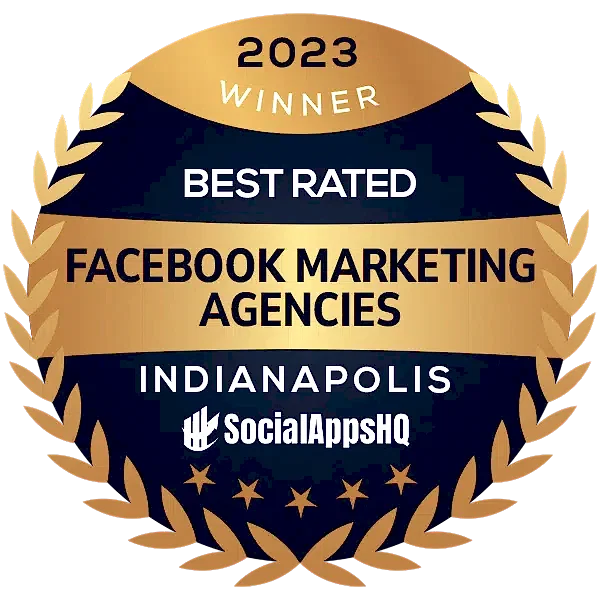
Spontaneity can be thrilling. Throwing your hands up in the air and letting the chips fall is sometimes the perfect attitude. An impromptu road trip to find the best fish tacos on the East Coast? Count me in. An unexpected midday trip to the spa for massage and mani/pedi? Sure. I can even understand the reasons behind a Vegas elopement. But blindly believing in a marketing campaign without a marketing strategy? Not today.
I bet you’re like, “Duh. Of course you need a marketing strategy,” and we’ll be like, “Yeah, but do you know why you need a marketing strategy?” For those who don’t—and even for those who do—what follows are the top reasons why fully developed marketing strategies carry some serious weight and why you should consider it now.
It speaks directly to your target audience
Every business knows how to talk about its products and services, and goes on and on about how great they are. Unfortunately, that’s not what your audience wants to hear. They want to know what problems you can solve for them and how your work will make their life easier.
To tell them this, you have to first understand what’s going on in their world. Your marketing strategy has this information. Accurate buyer personas are one of the most important features of a strategy, and within marketing more generally. Pinning down your audience and learning how to communicate with them directly will increase the likelihood of selling to them.
You can stop spending money in the wrong places
When you don’t have a clear plan in place, it’s tempting to just spend a little here and there on one-off campaigns. It’s the ‘let’s give it a go and see what happens’ approach to marketing. And more often than not, it’s a complete waste of time and money.
Successful marketing is about building up a recognizable, trusted brand. It’s about consistent, regular communications that get your messages heard. Throwing money at a Facebook advertisement one month and an email campaign the next is not going to get these results.
Having a defined marketing strategy prevents wasted efforts. It makes sure your budget is planned and allocated effectively. Each campaign is aligned with your overall objectives and designed to get results in both the short and long term.
It keeps your activity consistent and relevant
From your main tagline to the hashtags you use on Twitter, every piece of information you publish should be immediately recognizable as belonging to your brand. It should also be relevant and interesting to your customers and prospects.
With a marketing strategy, this is achievable because you’ve outlined your audience and what concerns them, and you know exactly how to engage with them and on which platforms.
Let’s say you create an email aimed at a particular buyer persona. Your strategy tells you which pain points and benefits to focus on, making sure the subject line, headings, copy, images, and call-to-action buttons are relevant. This, in turn, keeps your activity consistent.
It sets objectives for measuring ROI
When there’s no clear direction, we flounder. This is a typical outcome of non-strategic marketing activity. You might see some results here and there, but if you haven’t set any clear goals, how can you measure your return on investment?
Focus activity on a set of defined objectives. For instance, you might decide you want to grow a following on Twitter or Instagram. Perhaps you want to use e-marketing to cross-sell to current customers. Or maybe you want to reach the first page of the search results for your key terms. Whatever your goals, writing them into your strategy is the first step towards achieving them.
The best way to really do this is to set SMART goals:
- Specific
- Measurable
- Attainable
- Realistic
- Time-Bound
It’s a reference point
With multiple channels to consider (web, social, paid, search, etc.) and various target personas to reach, there’s plenty to factor into your marketing plan. No one should be expected to keep this information in their head! That’s where your strategy comes in.
For new employees or the people tasked with producing your marketing outputs, the strategy document forms the basis of their knowledge. It’s a point of reference, an in-depth guide, and it provides the initial building blocks of all your activity.
Equally, if the sales department or another team approaches you with an idea for a campaign, you can reference your strategy to check whether it’s relevant. If it doesn’t line up, then you have the means to explain why the idea isn’t worthwhile.
If your company doesn’t have a defined marketing strategy, you may still see some results. However, these are likely to be sporadic and could dry up if the industry changes or a new competitor comes to market. Instead, you should be proactively bringing new leads into the business through regular marketing activity. It’s the only way to build your brand and protect it from external factors.
Equally, if you have a strategy but it’s outdated, or your business or market has undergone significant change since its creation, it’s most likely redundant. It’s important to revisit your marketing strategy every couple of years to make sure you’re still headed in the right direction.
It’s entirely possible to create your own marketing strategy, but the process is made more productive by working with a marketing expert or digital agency like Onya to guide you and ask difficult questions. We help supplement the information you provide with market research and our experience with other businesses like yours. Rather than struggling with the details on your own, you have a team to do the work. Reach out today if you would like to learn more about how we can implement a strategy that moves the needle!








